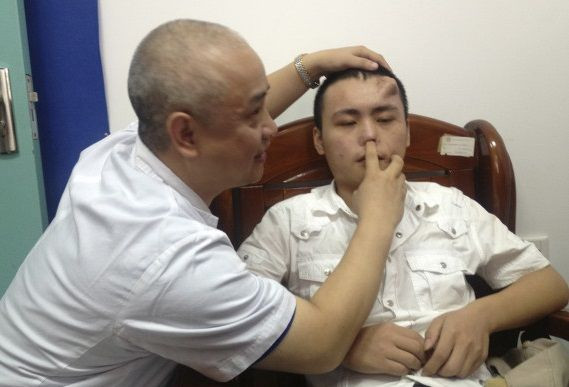Chinese Man, Xiaolian, Grows New Nose On Forehead [PHOTOS]

Surgeons at a hospital in Fuzhou, Fujian province, found a way to grow a new nose on a 22-year-old man’s head after he suffered a traffic accident that damaged his nose and led to an infection.
The man, known as Xiaolian, neglected to seek treatment following an accident in August 2012, and an infection set in, corroding the cartilage of his nose. Surgeons had no option but to find a way to create a new one for transplanting, Reuters reports.
Using a tissue expander on Xiaolian’s forehead, doctors “grew” a new nose on the man by cutting the tissue into the shape of a nose and taking cartilage from his ribs to mold the nose into shape. According to local media, the new nose looks good and doctors plan on performing the transplant surgery soon.

This isn’t the first time doctors grew a nose from scratch. In January, a British man who lost his nose to cancer grew a new one on his forearm. University College of London experts made the nose with stem cells and a glass mold.
“His nose was a little bit bent to the left and we asked if he wanted it straight, but he said no, he wanted it exactly the same,” professor Alex Seifalian told BBC Focus magazine. The nose was grown on the man’s arm for three months before being transplanted onto his face.
Seifalian isn’t a stranger to synthetic organs. His research team patented a nanocomposite material used to grow the first synthetic windpipe, which was transplanted into a patient in Sweden in 2011.
"The material pulses like an artery and we can make it different diameters," Seifalian told the BBC at the time. "We plan to use it for arteries, larger structures like [the] aorta, and it could even be used to create an ear, nose or replacement skin."
© Copyright IBTimes 2024. All rights reserved.






















